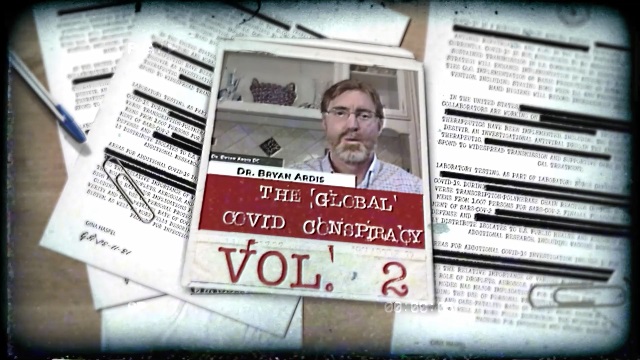

CMN First Channel - Webcam Wednesday |
|
To Receive Predictions From Christian Media, Send An Email To JamesLloyd@MediaChristianMan.com |
|
Click Here For Christian Media's Second Video Channel |
________________________________
Another Gospel |
|
Christian
Media
Communiqué THE CULTING OF CHRISTIANITY
Part II
When pop apologists glibly claim the pre-tribulation rapture was taught down through the ages, they make a complete mockery of mountains of historical data, which is the turf of the scholars. In Part I of the present work, I mentioned the historic British denominational struggles are directly related to our probe of doctrinal origins, but few of today's modern prognosticators of pre-trib have even the vaguest idea of what type of Christian theology was taught in the 12th century, the 15th century, or any century for that matter.
Indeed, most American Christians haven't a clue concerning the substance of the Gospel in America, even 100 years ago. They simply listen to the liars who have the flashiest presentation, and the substantive, Scriptural truth is lost in the race to entertain. This provides a fertile breeding ground for those who seek to serve two masters – one being the modern preacher's commitment to Christ, and a second "master" associated with the political and economic reality of survival in the degraded culture in which he lives.
Returning to the historical narrative, the lightning rod of controversy usually centers around one John Nelson Darby. Indeed, at one point the doctrine was even called Darbyism. Substantial research has been conducted, with the undisputed facts indicating that American Protestant churches received the doctrine largely through a series of Darby's high profile speaking tours. Although there is a considerable body of data showing a link between two dubious British groups, which undoubtedly contributed to Darby's development of the doctrine, such research, while interesting, sidesteps the central issue.
That Darby popularized the doctrine is widely accepted, as a substantive paper trail exists. One Margaret Macdonald, an un-credentialed teen living in an era when females were significantly marginalized, did indeed utter a very rudimentary version of the "Rapture" while in a trance-like state, before Darby "discovered" the Rapture. Another ministry figure, Edward Irving (who was of some disrepute) had proven contacts with MacDonald, as did Mr. Darby; but eventually, Darby's respectable background facilitated his dissemination of pre-trib.
In its early incarnations, the doctrine had many theoretical connections based on tenuous applications of Scripture, such as the ridiculous idea the measurements of various passages in the Egyptian pyramids predict the date of the alleged event. To this very day, a few bombastic and unlearned proponents of the doctrine, seeking to distinguish themselves as serious prophecy figures worthy of financial support, still cling to the corrupted concept; however, the more studied of the Rapturists have long since abandoned the link to Pyramidology.
While most Pre-Tribulationists recognize Darby's crucial role in the popularization of the doctrine, they stubbornly cling to the notion the doctrine is Scriptural and was known from the earliest time, asserting that it was obscured during the medieval period, and virtually lost – only to be re-discovered in the 19th century. In this regard, it is common practice for Rapture promoters to twist the record, and cite historical figures which they assert knew about the Rapture.
The ferocity with which Rapture Cult aficionados illogically defend the notion that the doctrine was taught by a multitude of important figures has always fascinated me, as the refusal to acknowledge fundamental historical fact is a prime characteristic of a person who is indeed delusional – yet the Rapturists widely persevere in a way that betrays the Spirit of the Age is indeed at work in the conflict. It is this facet of the history that I wish to pursue, as I have now concluded the Spirit of Antichrist has been seeking to plant the seeds of the doctrine from the earliest possible time. Thus, subtle traces of the doctrine may indeed be found in early church history, even though it never gained any traction until Darby's time.
In modern times, the conflict over the Rapture has largely shifted to one which pits the concept of the Pre-Tribulational return of Christ against the Post-Tribulational return of Christ, and this is a classic manifestation of the Devilish system of the Dialectic – the intellectual witchcraft which moves two polarities into an artificially constructed environment, then seeks to facilitate between the two fixed positions to create a synthetic center – thus relocating the entire construct away from a fixed position. This is, of course, seen in the formula associated with the Hegelian Dialectic of Thesis Versus Antithesis Equals Synthesis – whereby the Synthesis becomes a new Thesis – thus creating a climate of constant change.
Recognizing the present Dialogue largely consists over the Pre-Trib Rapture Versus the Post-Trib Rapture, it is obvious the Synthesis will consist of a worldview associated with the Rapture. In this way, like an intellectual virus constantly mutating to accommodate a changing environment, the Rapture Cult is consistently morphing into novel forms to sustain itself. If we think of this leavenous process in a political venue, when Americans are consistently given the "choice" of a globalist Democrat versus a globalist Republican for the office of President, only a fool would refuse to believe the process has not been structured to keep a globalist in the West Wing.
The operative word here is change, and as this process continues, the lack of fidelity to the truth provides the Spirit of Antichrist with fertile ground in which to plant its deadly tares of deception.
Earlier I mentioned how Pre-Tribbers enthusiastically embrace the concept that noted Christian figures down through history believed in, or even propagated the Pre-Tribulational Rapture doctrine. Important theological figures, such as Matthew Henry, John Gill, Joseph Mede, Justin Martyr, and many others are routinely cited. Not one of these individuals ever heard of the Rapture doctrine as we know it today; but unfortunately, in the media circus of Pre-Trib, the vast majority of the prophetic voices consistently cite the work of others, in pathetic examples wherein each layer of hearsay progressively embeds the assertion with cumulative errors.
This trickle down travesty is insidious, for as Pre-Tribbers quote a Rapture Cult proponent they admire, the idealized source is, in turn, quoting another Cult proponent – who may even be quoting yet another individual. Incredibly, the most recent person regurgitating this refuse has almost never read the original citation, so they are not in a position to spot even copying errors – nor are they so inclined. This fractured and flawed transmission system is amplified by our media-centric social order, so as flashy preachers are treating on the subject before the cameras, under the carnal influence of emotion and an adrenalin drenched intellect, in seeking to keep their audience enthralled they frequently rely on memory in citing names, dates, and even quotations. For instance, Hal Lindsey, who authored the most popular book of its time on the Rapture, once gleefully told an enthusiastic audience of Pre-Tribbers of a verbal clash with a noted Post-Tribulationist, Dr. Robert Gundry, the author of a compelling Post-Trib book, which was in vogue at the time.
In a presentation reminiscent of a political candidate charging up a friendly partisan crowd by telling them just what they want to hear, Lindsey told the large group that he "hit Gundry….with the question of who will populate the Kingdom" – a favored argument from that period. Lindsay then told the excited crowd that Dr. Gundry "had no answer for it." Obviously, as a learned professor of New Testament at University level, Dr. Gundry has "an answer" for it, but he never got the chance, as the debate Lindsey was recalling never took place at all.
The fact is, during the period when Gundry's scholarly book was having an impact on Pre-Tribbers, a debate was scheduled as Pre-Tribbers wanted to counter Gundry's rising Post-Trib influence. Erroneously thinking the pop apologist Lindsey was an adequate match for Gundry, the organizers had recruited Lindsey for the spectacle, which Lindsey apparently prepared for. However, at the last minute the professor had a prior commitment which forced the selection of another Post-Tribber to debate Lindsey the liar who, speaking on another occasion in the heat of the moment I just described, boasted of how he bested the prominent Post-Tribber in a debate that never occurred.
The pathetic episode has now been recounted in at least 3 books, but the fragile grasp Hal Lindsey has on the real world hasn't made a dent in the enthusiasm of those caught in the greatest snare of all time:
"For as a snare shall it come on all them that dwell on the face of the whole earth" (Luke 21:35).
--- James Lloyd
[To Be Continued]
The Culting Of Christianity shows how ancient mystics sought to hijack the gospel through the efforts of the Gnostics – the Occultists who believed secret knowledge was the key to salvation. This work links Egyptian mysticism to leaders in the early church, and the entire work conclusively shows the idea of a pre-tribulation evacuation was written in religious documents before Jesus was born.
______________________________________________________________
Welcome To The World Of Christian Media! Christian Media PO Box 1414 Medford OR 97501 |
Potter
Star To Fall
Diverse Beast
The Lion
The Bear
The Leopard
Graverobber
My Pilot Is A DEI Hire
Graverobber
Hallelujay Feeling 
Stealth Dispensationalism 
Covid Conspiracy Volume III DVD 
San Francisco Promo 
Biden Song 
Conspiracy Club Volume II DVD 
Wrong Way 
Conspiracy Club Volume I 
Good Ones 
Clean Faith Dog 
The Rage Of Nations 
Ten Kings 
Sucker Punch 
The Perdition Engine 
Second Timothy 
The Shadow And The Substance 
Triuniverse 
Armageddon 
War In Heaven 
Deja Vu DVD 
Pre-Wrath 
Elijah 
I'm Not Alone 
Remnant |
Click here to make CMN your homepage Site NavigationHomeAbout Us Broadcast Schedule Hosts Catalog Prophecy Info America In Prophecy? Preparedness Support This Ministry Letters From The Edge The Christian Media Ministry makes our materials available through gifts made to the ministry. When you help Christian Media, we reciprocate with the materials in which you've indicated an interest. Supporters of our ministry do so because they believe in the message the LORD has given us, and we seek to follow the Spiritual directive which Christ gave to the Apostle Peter, in that we seek to feed His sheep. This constitutes a contract, in that gifts we receive indicate a willingness to be instructed in the things of the LORD, as the supporting gifts we receive from the body of Christ allow us to continue in the mission He has called us to. Help row the CMN boat Click on the oar to donate with Paypal |
|
|
ALL RIGHTS RESERVED © 2002-2021 CHRISTIAN MEDIA NETWORK |